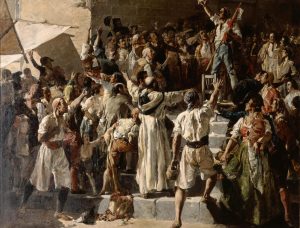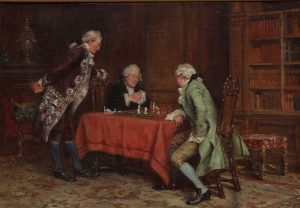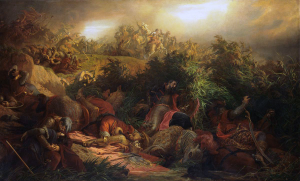
“Every contractor is a thief.”: Logistics, Insurgents, and the Art of War in Early Napoleonic Spain, 1808–9
Unexpected setbacks to Napoleon’s plan to control Spain at the onset of the Peninsular War (1808–1814) required the emperor to launch a 270,000-man counteroffensive into the heart of the country in late 1808 – culminating with the British defeat at the Battle of Corunna, January 16, 1809.
Read More
Benjamin Franklin, “The Morals of Chess,” and History’s “Most Universal Game”
One of the most popular and novel games among educated citizens in colonial America was chess, and one of its most prominent advocates was the polymath and Founding Father Benjamin Franklin.
Read More
Cold War’s End: How Did Winds of Change Shape Pop Culture?
The Cold War in film, literature, and music from the late 1980s and early 1990s is a valuable remembrance of a world in transition and the public’s perceptions of those changes.
Read More
The Ottoman Empire, Hungary, and the Protestant Reformation (I)
The fall of Constantinople in 1453 thrust the Ottoman Empire to the center of European affairs. News of the final collapse of the old (Eastern) Roman Empire spread rapidly throughout the continent and calls to fight the infidels were made by kings, nobles, and clergy alike.
Read More
An American Look at Napoleon’s “Dark Age” Press, 1810-1811
Emperor Napoleon Bonaparte’s key to perpetuating the war despite setbacks was ensuring the compliance of the people at home. Thus total control over French newspapers fueled the constant call for more soldiers.
Read More